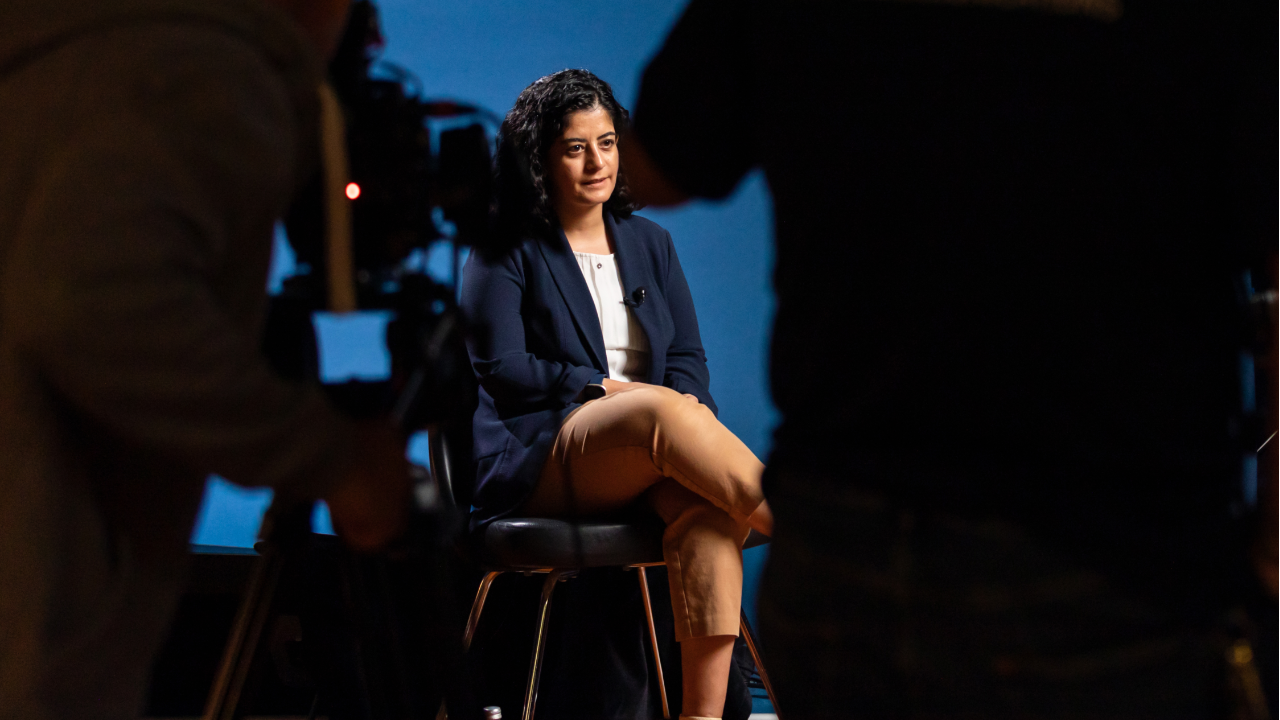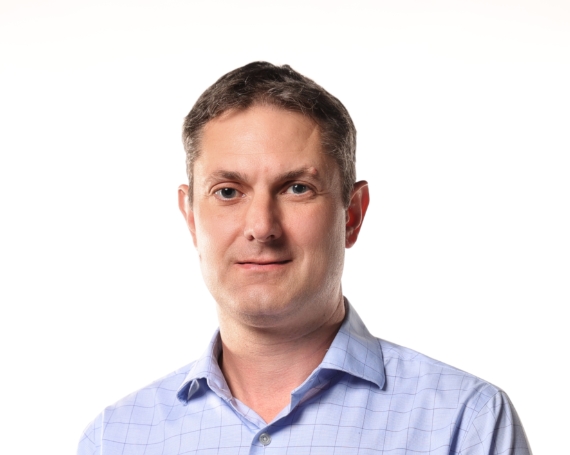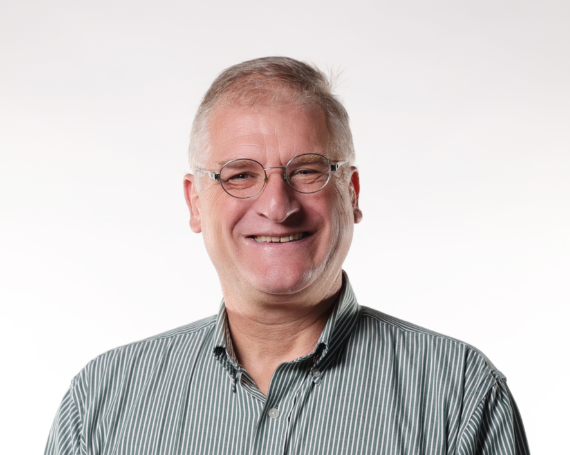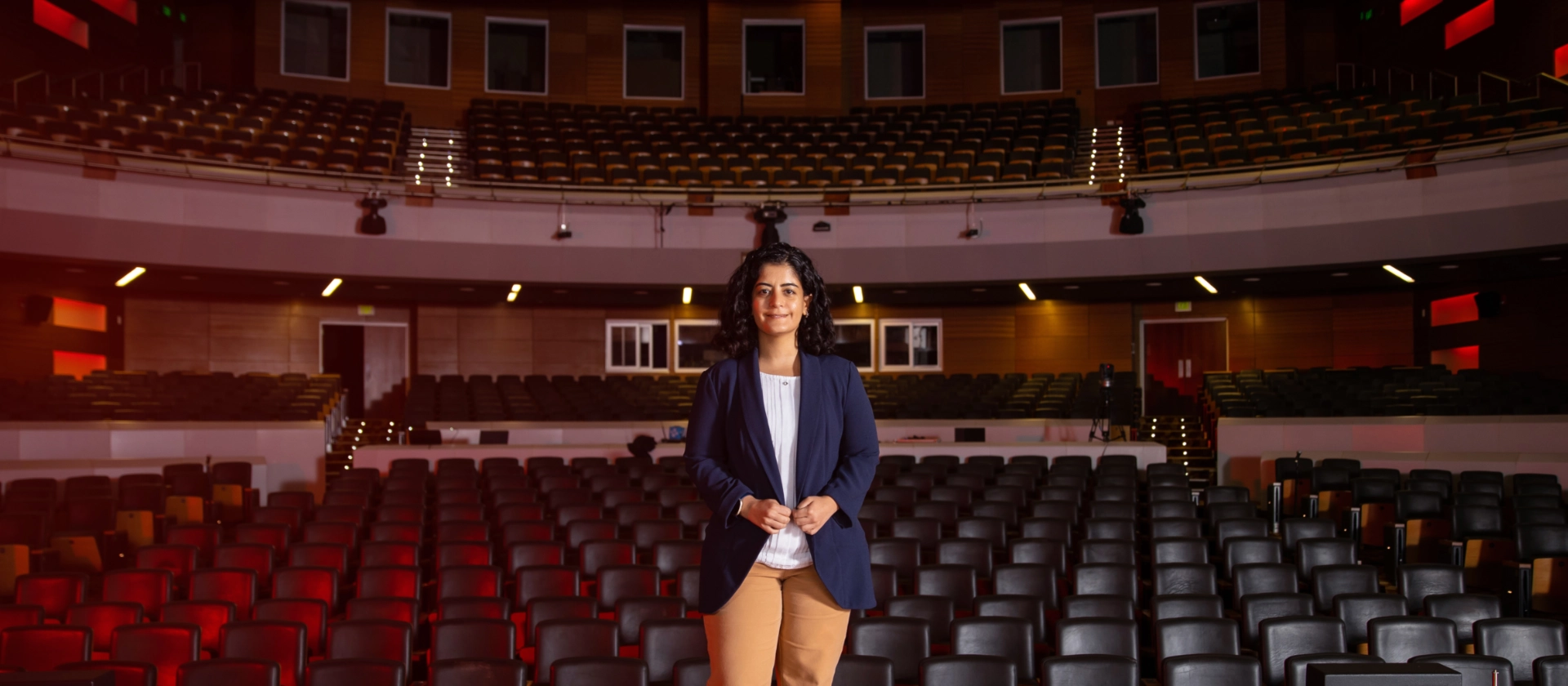
Leena Ali Ibrahim
Assistant Professor of Bioscience

With so many more potential discoveries ahead of her, Ibrahim was primed and ready to find the next stop on her academic journey, and fortunately, she discovered KAUST.
Unveiling the Secrets of Sensory Systems Neuroscience
Professor Leena Ali Ibrahim was born in Bulgaria and grew up between there and India, while always feeling connected to her family’s proud Palestinian heritage. From an early age she was keenly interested in biology, and until high school she felt that the obvious career path for her would be medicine. At that time, however, the Human Genome Project was making huge strides toward determining the precise composition and sequence of all the genetic information contained within human cells, and this opened Ibrahim’s eyes to possibilities she had not yet considered. “One thing I realized while I was in high school,” she reveals with a smile, “was that all the biological discoveries are made by scientists; rarely by medical doctors.” From that point, the quest for discovery formed the basis of Ibrahim’s academic pursuits, setting her career on a distinct and promising trajectory.
Those pursuits began in earnest with a bachelor’s degree in biomedical science, which she obtained from University of Delhi in New Delhi, India. She went on to complete her master’s degree at Jawaharlal Nehru University, also in New Delhi, before her next opportunity took her to the other side of the world. With some trepidation and some excitement, Ibrahim moved her life to the United States to study for a Ph.D. in neuroscience at University of Southern California (USC) in Los Angeles. During her Ph.D., she was researching “how the brain uses cross-modal information to process sensory stimuli,” that is, how a person’s hearing, for example, might affect their visual perception. This research led to her first big discovery: “a group of cells [in the brain] that were very important for this process,” which in turn led to her being granted a postdoctoral fellowship by the Department of Neurobiology at Harvard University, where she continued exploring these cells for four more years.
Neuroscience is an astonishingly broad and rich subject, within which the field of study Ibrahim chose might best be described as “sensory systems neuroscience.” At the heart of her research at KAUST is the question of “how our brains are affected by all the sensory experiences that we are exposed to in our lifetime,” which opens the door to innumerable other fascinating questions. There’s a lot that is known already, for example, that environmental factors such as stress can impact “how we perceive visual information;” but the challenge, as Ibrahim describes, is in “understanding the circuitry behind it.” That challenge alone will require “the development of new imaging and manipulation tools,” to further understand the specific cells and processes about which very little is known.
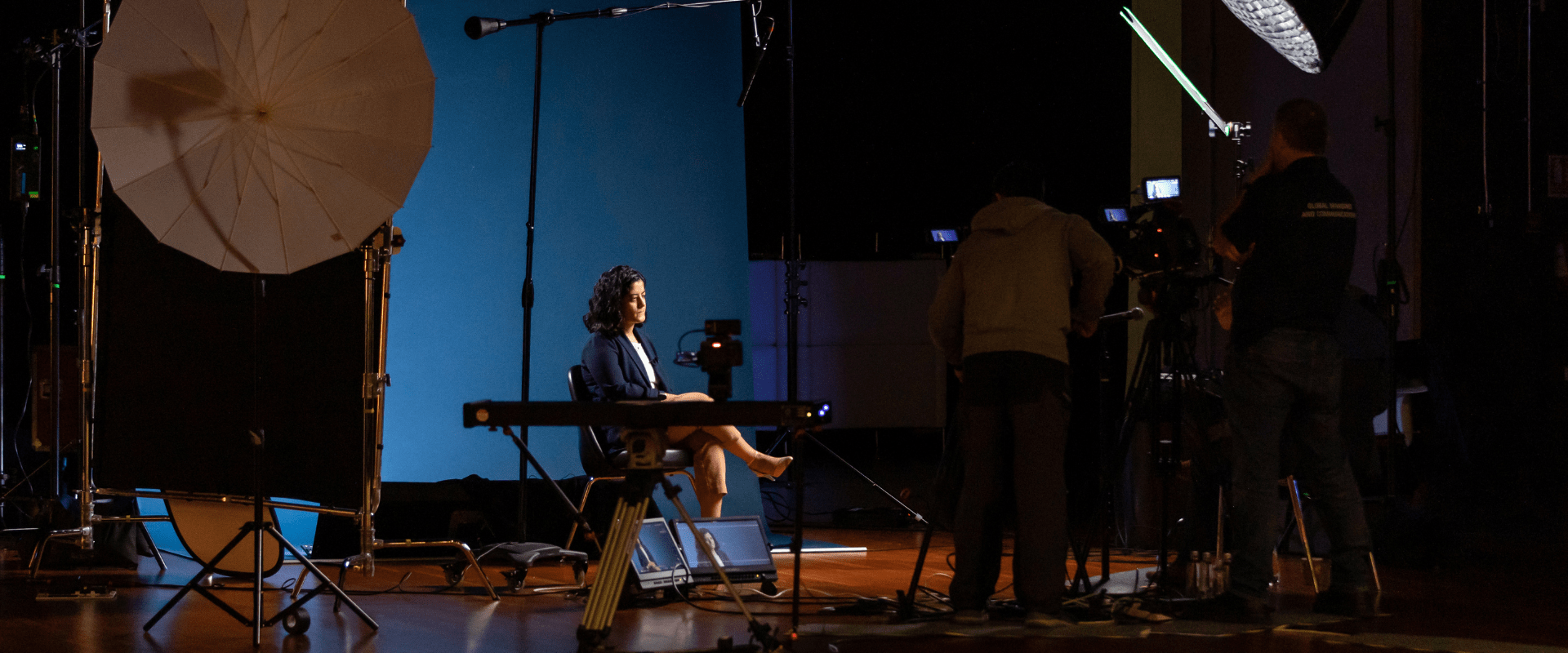
With so many more potential discoveries ahead of her, Ibrahim was primed and ready to find the next stop on her academic journey, and fortunately, she discovered KAUST. In 2019, she was speaking at a conference where Pierre Magistretti, now KAUST’s Vice President of Research, was the keynote speaker. He told her about the state-of-the-art university by the shores of the Red Sea, and of the resources available for the research Ibrahim wanted to conduct. Not only that, but KAUST offered her, “an environment where [she] could be close to [her] family while doing cutting-edge research.” These factors combined led to her eagerly joining the faculty in 2021, and since then she has been busy with establishing her lab, not just with her own research but also with another pursuit she is passionate about, mentoring students.
Ibrahim has strived to create an environment where she and her students can “grow together while answering these exciting research questions,” and she finds great joy in seeing their successes. A lot of the research they do involves surgery on mice, and one of her students innovatively devised a way to minimize bleeding and maximize the success of surgery. What may seem like quite a small breakthrough, relatively speaking, was important to Ibrahim because it showed the student was “really thinking about different kinds of ways to improve survival.” This is the kind of thinking she knows will lead to the even bigger discoveries they are working diligently toward, and she knows that patience and perseverance are what’s needed to get there. “It’s a journey for both of us,” she affirms with humility, “for me as a young professor, and for the students in my lab.”
